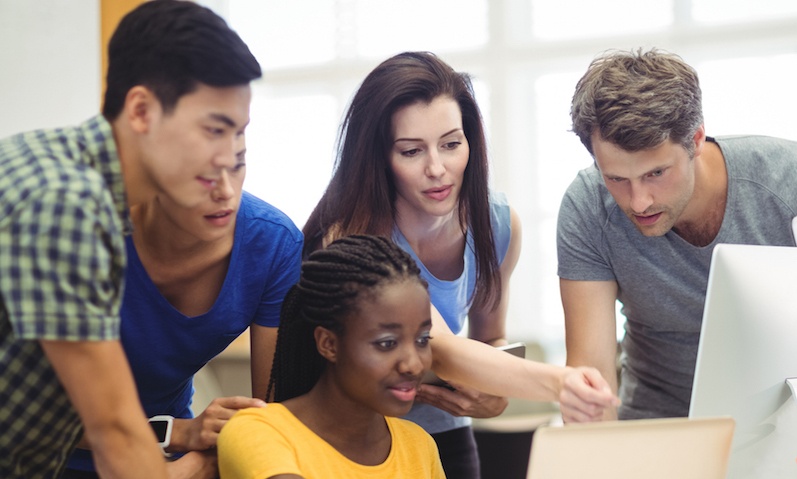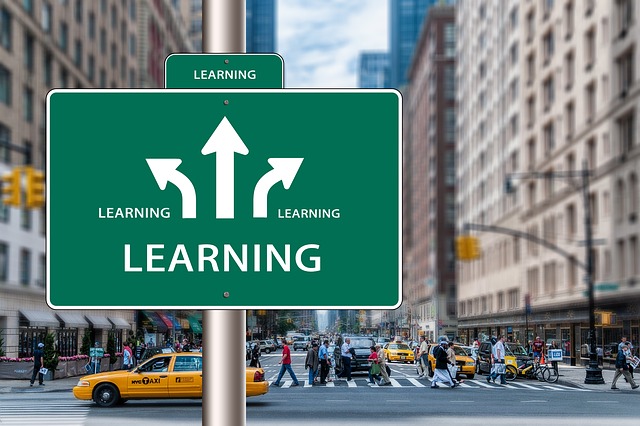“I am learning all the time. The tombstone will be my diploma.” This quote by Eartha Kitt is profound in that as human beings, we never truly stop learning. We learn how to walk, how to talk, to read, write, and develop as many skills as we need to become active and functioning contributors to our society. But in the meantime, have we spent enough time learning how to learn?
Whether it is sciences, developmental skills, or even languages, learning can be maximized by understanding how best to learn in the first place.
Follow our top 5 techniques to hack the science behind learning how to learn in a productive and efficient manner.
#1 Practice Makes Perfect
“Champions keep playing until they get it right.” ― Billie Jean King
In a fast-paced world of instant gratification that seems to be perpetually in a rush, performing activities repetitively seem counter intuitive and useless. However, there is more than enough scientific backing to evidence the high quality of learning to be gained from practicing consistently.
Committing a few hours daily to your study instead of cramming everything in a short span will greatly improve your retention abilities and maintain skills in the long term.

#2 Switch It Up
“Never let formal education get in the way of your learning.” – Mark Twain
Ulrich Boser determined that instead of pre-setting our minds to one learning style, we should switch up and play around with various styles depending on the topic that is being learned. While reading is important, it may be boring and not useful to study something like math, where repetition would be more apt. Language learning would require more verbal study while carpentry would require a more hands-on approach.
Scaffolding is a term educators are very familiar with, and for all of us, it just makes common sense! In education, scaffolding refers to a variety of instructional techniques used to move students progressively toward stronger understanding and, ultimately, greater independence in the learning process.
Customizing your learning and combining different styles is truly the way to go to ensure effective retention of material.
#3 Utilize Previous Learning to Master New Learning
“Study the past if you would define the future.” ― Confucius
In addition to switching different styles of learning, recalling on previously learnt material can be a useful way of learning new material. When you associate a new subject with something whose matter you are already familiar with, new connections are formed that will help with retaining both subjects effectively at a later time.
“[Students] come to formal education with a range of prior knowledge, skills, beliefs, and concepts that significantly influence what they notice about the environment and how they organize and interpret it. This, in turn, affects their abilities to remember, reason, solve problems, and acquire new knowledge.”
– Bransford, Brown, and Cocking, How People Learn.

#4 Test Yourself and Teach Others
“While we teach, we learn.” — Seneca
The best way to approach testing yourself and others is to think of it as a study tracking technique. When you are put under the pressure or remembering material, you acknowledge your weaknesses, thereby allowing yourself to spend more time learning what you don’t know over what you already know quite well.
The same is applicable to teaching someone else. You have to know the matter well to effectively explain it to someone else. Consequently, while teaching others, you are establishing that you know a subject well and you are also practicing it once again. Modern curriculum schools are advocates of the “Think, Pair and Share” classroom strategy for a reason!

#5 Practical Experience
“Tell me and I forget. Teach me and I remember. Involve me and I learn.” – Benjamin Franklin
While reading textbooks, listening to lectures, or doing research in the library are good techniques to learn and retain information, actually putting new knowledge and skills into practice can be one of the best ways to improve learning. Gaining practical experience, will not only enhance your learning via kinesthetic learning, but it could expose you to new obstacles to overcome that you wouldn’t have experienced previously.
For example, Task Based Learning approach focuses on a task and output, rather than learning separate parts. So in language learning, you would focus on using language in real life, such as learning how to order in a café, or visit the doctors, book a holiday etc.
It is important to remember that learning doesn’t have a one-size-fits-all solution! If you are visual, then try video or online learning. Find a method of study that proves successful for you and keep at it.
Andrie Steliou
Latest posts by Andrie Steliou (see all)
- 8 Ways to Help Keep Your Child Focused and Engaged in Online Learning - October 19, 2022
- How to Improve Social Intelligence Skills? - May 10, 2022
- How to Improve Organizational Skills at Workplace? - May 6, 2022

